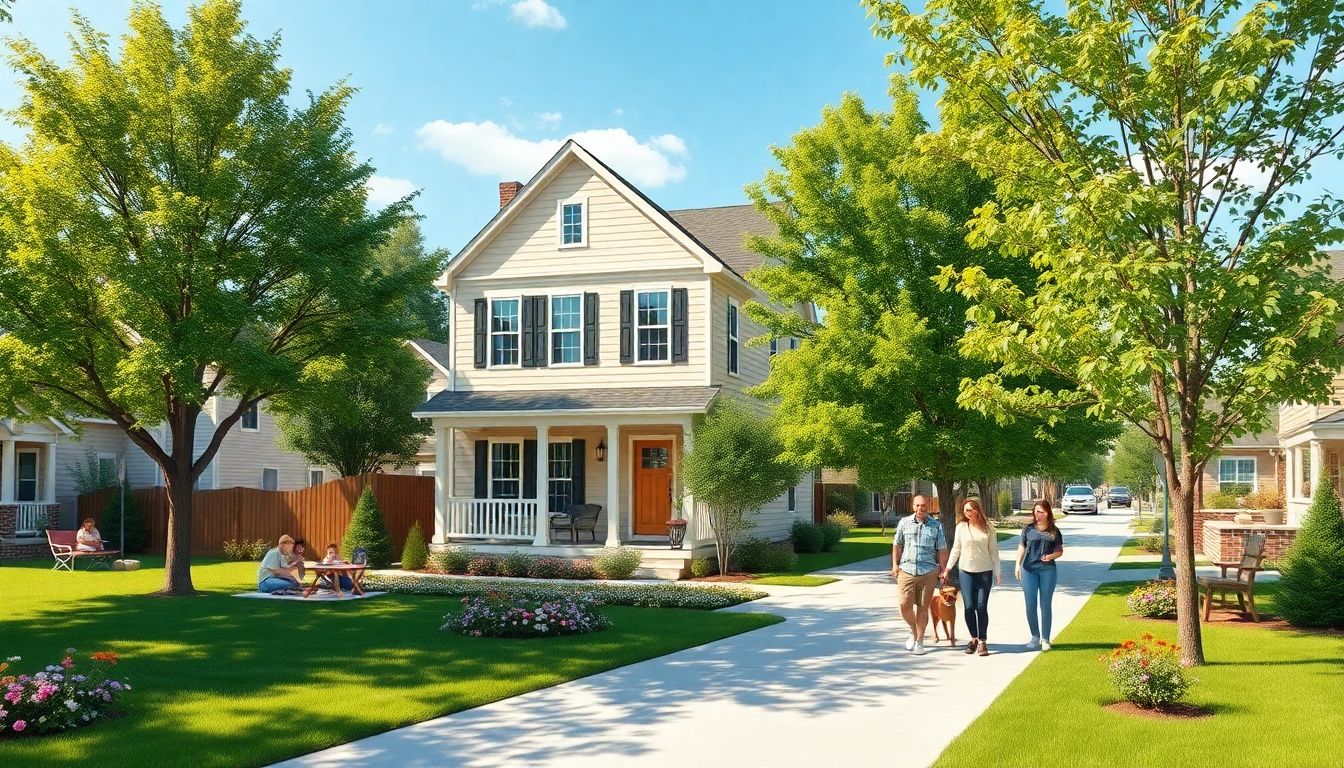
How to Choose the Perfect Neighborhood for Your New Home
Buying a home is a big deal. But picking the right neighborhood? That's just as important. Your neighborhood impacts everything. Think about your daily commute or meeting new friends. Don't let a bad pick sour your dream home because of a bad location.
This guide walks you through finding a neighborhood. One that matches your life, what you value, and your future dreams. We'll cover finding what you need. Also, looking at areas and making your final choice.
Define Your Priorities and Lifestyle
Before you even start browsing listings, take a moment. Think about what truly matters to you. What are your must-haves? What would be nice to have, but aren't essential? It's all about self-reflection.
Identify Your Lifestyle Needs
Are you all about family? Maybe you crave an active social life. Or do you prefer peace and quiet? These lifestyle factors impact your neighborhood choice.
- Family-oriented: Look for great schools, parks, and kid-friendly activities.
- Social butterfly: Check out neighborhoods with restaurants and bars. Are there community events or a lively downtown area?
- Peaceful retreat: Seek out quiet, secluded areas. They could be further from the city center.
Determine Your Budget and Financial Goals
Neighborhoods affect your finances more than just the house price. Think about property taxes. What about HOA fees? Also, insurance costs and how much you'll spend getting to work.
Getting pre-approved for a mortgage helps a lot. It tells you how much you can spend. This then narrows down neighborhood choices.
Consider Your Future Plans
Think long-term. Do you plan to start a family? Maybe change jobs? Or eventually retire? Will the neighborhood support those goals?
- Starting a family: Great schools and safe streets are important.
- Changing jobs: Consider commute options and access to different job markets.
- Retirement: Look for access to healthcare, recreational activities, and senior services.
Research Potential Neighborhoods
Time to gather info. You should check out different areas. Use many sources and double-check what you find.
Online Research and Resources
Websites like Zillow and Redfin are great starts. Niche and local city sites help too.
- Zillow/Redfin: Home prices, photos, and basic neighborhood info.
- Niche: School grades, crime rates, and resident reviews.
- City websites: Local laws, community plans, and upcoming projects.
Local Experts and Realtors
Working with a local real estate agent is key. They know the area inside and out. Agents can point out hidden gems. Also, they can tell you about future plans.
"A good realtor will not only find you a house, but they will also provide valuable insight into the neighborhood dynamics, school systems, and local amenities," says Sarah Johnson, a realtor with 10 years of experience.
Community Forums and Social Media
Check out Nextdoor, Facebook groups, and Reddit. These are great for firsthand accounts. Ask residents about their experiences living there.
- What do you love about the neighborhood?
- What are the biggest challenges?
- How would you describe the community vibe?
Evaluate Key Neighborhood Characteristics
Now, dig into the specifics. Certain things will shape neighborhood life.
Safety and Crime Rates
Check crime stats carefully. Understand how they are reported. Visit the area at different times to get a feel for safety.
Local police websites often post crime data. You can also use crime mapping tools online.
Schools and Education
Good schools matter, even without kids. Schools can really impact property values.
GreatSchools.org is a good tool for school performance.
Amenities and Conveniences
Think about what you need close by. Grocery stores? Restaurants? Parks? What about doctors? How easy is it to walk around or get where you need to go?
Visit and Experience the Neighborhood Firsthand
Get out there and explore.
Walk and Drive Around at Different Times
Visiting at different times matters. Morning, noon, and night. Weekdays and weekends. This shows you traffic, noise, and what people do.
Talk to Residents and Neighbors
Chat with people at parks or coffee shops. What do they think of the neighborhood? What do they love, and not love?
Attend Local Events and Activities
Go to a farmer's market. Attend a festival. See a school play. It gives you a real taste of the area.
Make Your Decision and Take Action
Time to put it all together.
Review Your Priorities and Evaluations
Look back at what you need. Compare that to each neighborhood. Make a list of pros and cons. Give each neighborhood a score.
Consult with Professionals
Talk to a real estate lawyer. What about a financial advisor? Or a home inspector? They help you make a safe choice. They help you avoid problems.
Trust Your Gut and Make an Offer
Pick a neighborhood that feels right. Then, make an offer! Be confident, but smart.
Conclusion
Choosing a neighborhood for your new home takes work. Think hard. Research a lot. Explore the area. Talk to people. Doing all this can help you pick an area that fits your life. Prioritize your safety. Then, dive into online resources. Don't forget speaking to locals. Then, confidently choose a spot where you can make memories.